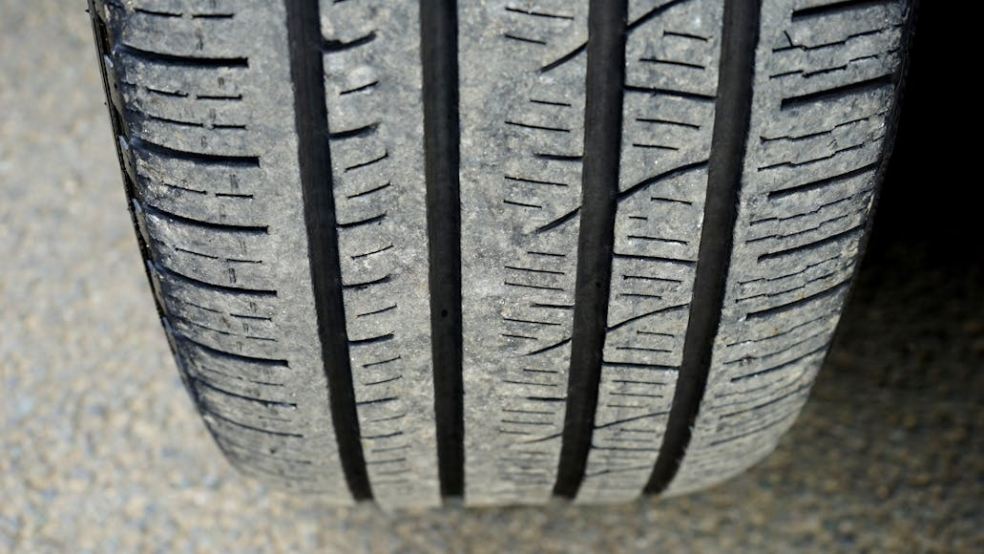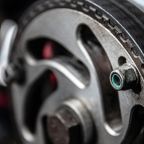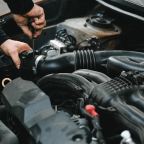
How Long Should SUV Tyres Last? Practical Tips and Essential Insights
When investing in SUV tyres, understanding how long they should last is key to ensuring safety, performance, and value for money. While many factors influence tyre lifespan, with the right knowledge and maintenance practices, you can maximize their longevity. This article provides practical, easy-to-follow tips and insights to help you extend the life of your SUV tyres and understand when it’s time for a replacement.
How Long Do SUV Tyres Usually Last?
They typically last between 50,000 to 75,000 miles, or around three to five years, depending on maintenance procedures, road conditions, and driving behaviors. This range isn't fixed, though, as a number of things can either decrease or lengthen the life of your tyres.
Key Factors That Affect Tyre Lifespan
1. Driving Habits
- Aggressive driving, such as hard braking and rapid acceleration, can wear down the tread more quickly.
- Cornering at high speeds also causes more strains, reducing their lifespan.
Tip: Drive consistently and smoothly to avoid unnecessary sudden stress on your tyres.
2. Road Conditions
- Driving on rough, uneven, or poorly maintained roads accelerates wear.
- Off-road driving on gravel or rocky terrain, while fun, can be particularly harsh.
Tip: Use tyres designed for the terrain you frequently drive on, such as all-terrain or off-road for adventurous routes.
3. Weather and Climate
- Extreme heat can cause the rubber to degrade faster, while freezing temperatures may make it brittle.
- UV exposure over time can also weaken its materials.
Tip: Store your SUV in a garage or shaded area when not in use to protect your tyres from harsh weather.
4. Tyre Quality and Type
- Higher-quality brands often last longer because they’re made with better materials and advanced technologies.
- Performance tyres may wear out faster due to their softer rubber compounds.
Tip: Invest in reputable brands that balance durability and performance.
5. Mileage and Age
- Even if you don’t drive much, truck tyres degrade over time. Rubber compounds naturally break down after 6 to 10 years, regardless of use.
Tip: Replace them based on age, even if they appear to have sufficient tread.
6. Maintenance Practices
- Misalignment, Improper inflation, and lack of rotation all contribute to uneven wear and a shorter lifespan.
Tip: Regular maintenance is essential (more on this later).
Signs Your SUV Tyres Need Replacing
To ensure your safety on the road, be on the lookout for these signs that indicate it’s time for a new one:
1. Low Tread Depth
- The legal minimum tread depth in most regions is 2/32 of an inch, but for SUVs, replacing it at 4/32 of an inch ensures better traction.
- Use the penny test: Insert a penny into the tread with the Queen's head facing down. If you can see all of her head, it’s time to replace it.
2. Uneven Wear - Tyres wearing out faster on one side indicate alignment or suspension issues.
3. Cracks and Bulges - Visible cracks, sidewall bulges, or bubbles suggest the structure is compromised.
4. Frequent Air Leaks - If you’re constantly inflating it, it might indicate internal damage.
5. Excessive Vibration - Unusual vibrations during driving may signal tyre imbalance or internal damage.
Useful Tips to Maximize the Lifespan of Your SUV Tyres
To get the most out of your SUV tyres, follow these maintenance practices:
1. Check Pressure Regularly
- Underinflation generates more heat and wear out faster, while overinflated tyres may have reduced grip and uneven wear.
- Check your pressure at least once a month and before long trips. Refer to your SUV’s owner’s manual for the recommended pressure.
2. Balance and Align
- Unbalanced or misalignment lead to uneven wear and can compromise your vehicle’s handling.
- Have it aligned and balanced every 6–12 months or whenever you notice uneven wear.
3. Rotate Every 5,000–7,500 Miles
- Rotating ensures even wear across all four wheels, especially in SUVs where weight distribution can vary.
- Your mechanic will typically follow a pattern, such as front-to-back or cross-rotation.
4. Inspect for Damage
- Regularly inspect for cuts, punctures, or embedded debris that could lead to issues down the line.
5. Avoid Overloading
- SUVs are often used for hauling heavy loads, but exceeding the weight capacity puts extra stress.
- Check your vehicle’s load rating and avoid exceeding it.
6. Drive Cautiously
- Accelerate and brake gently, and avoid sharp turns to reduce wear.
How Different Types of Tyres Affect Lifespan
The type you choose for your SUV can also influence their longevity. Here’s a quick comparison:
All-Season
- Designed for moderate climates, these are versatile and long-lasting.
- Average lifespan: 50,000 to 70,000 miles.
Performance
- Optimized for handling and speed, these wear out quicker due to softer rubber compounds.
- Average lifespan: 30,000 to 50,000 miles.
All-Terrain
- Ideal for SUVs that venture off-road. They’re more durable but may wear out faster on paved roads.
- Average lifespan: 40,000 to 60,000 miles.
Winter
- Specifically designed for snowy or icy conditions, winter tyres tend to wear out faster in warm weather.
- Average lifespan: 20,000 to 40,000 miles.
Additional Information You Should Know
- Warranty: A lot of manufacturers provide mileage warranties, but keep in mind that use and upkeep determine how long they last.
- Recycling: To reduce your impact on the environment, think about recycling your old tyres as you replace them.
- tyre Pressure Monitoring System (TPMS): These days, SUVs frequently have TPMSs that notify you when pressure lowers. Don't disregard these cautions.
Final Thoughts
You may save money, increase safety, and enjoy a better driving experience by knowing how long your SUV tyres should last and heeding the advice given above. Keep in mind that a number of factors affect tyre life, so be proactive with maintenance and inspections.
Purchasing high-quality ones and maintaining them properly will not only increase their lifespan but also guarantee that your SUV continues to operate at its peak for many years to come. Have a safe trip!











